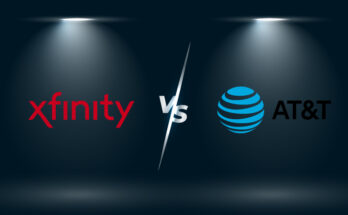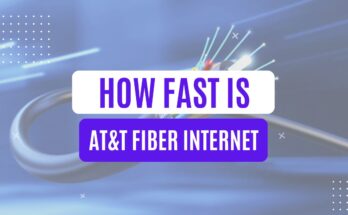AT&T Internet Air delivers a convenient package. This costs $60 per month download speeds between 90 to 300 Mbps and upload speeds between 8 to 30 Mbps, with no contracts, device fees, and limitless data. Combining AT&T Internet Air with a qualifying AT&T wireless package brings the cost down to $47 per month. Its features include no data caps, simple self-setup, and convenient cost. This is perfect for light to moderate consumers in regions without fiber.


Get an unbiased 2025 AT&T Internet review: 5G speeds, pricing, availability & more!
Is AT&T Internet Air Excellent?
AT&T Internet Air offers robust speeds between 100 Mbps to 300 Mbps download speed and 30 Mbps to 50 Mbps upload speed in regions with excellent 5G coverage. This makes it superb for video calls, broadcasting, and multifunctioning in small to medium-sized houses. Performance differs broadly, with a few users encountering efficiency problems, slow speeds or limited range, particularly if signal strength is not good.
AT&T Internet vs Other Providers
| Plan | Cost | Maximum Download Speed | Maximum Upload Speed | Data Cap |
|---|---|---|---|---|
| AT&T Internet | $60 per month ($47 per month when bundled with an AT&T wireless Internet) | 40 to 140 Mbps | 5 to 25 Mbps | Unlimited |
| T-Mobile 5G Home Internet | $50 per month ($35 per month when bundled with a T-Mobile Voice Line) | 72 to 245 Mbps | 15 to 31 Mbps | Unlimited |
| Verizon 5G Home Internet | $50 per month ($35 per month when bundled with a Verizon mobile phone plan) | 85 to 1000 Mbps | 10 to 50 Mbps | Unlimited |
A&T Internet Air covers the essentials, but T-Mobile and Verizon’s 5G home internet plans surpass those basics. Positioned as robust cable internet alternatives, both T-Mobile and Verizon provide download speeds ranging from 85 to 1,000 Mbps, ideal for frequent large file downloads. Their base plan pricing is remarkably close to Internet Air, and they offer substantial discounts of up to 50% when bundling with a qualifying mobile plan. In contrast, AT&T Internet provides a modest $20 monthly discount for AT&T cell phone customers with Internet Air.
What You Obtain With AT&T Air Internet vs Traditional Internet Providers?
If you’re prepared to switch to AT&T DSL, residing in a remote or distant region, you can choose the AT&T Internet price at $60 per month. Let’s look at the basic difference between AT&T Internet vs Conventional Internet Providers.
| AT&T Internet Air | Conventional Internet Providers |
|---|---|
| – No contracts or annual cost increments. – No quick downloads. – Completely wireless setup | – Cost increments after the first 12 months. – Data caps and additional charges. – Running cables and drilling at your home. |
AT&T Internet Availability
AT&T Air Internet is present in key cities in 47 states. But AT&T is moving across the Internet Air extent city-wise, but service differs broadly by destination. It is available in most regions across the United States.
AT&T Internet Features
AT&T Internet Air set up covers the essential aspects expected from a home internet plan and introduces some unique features. Availability varies widely by city, contingent on AT&T’s 5G network coverage. To check its availability, contact AT&T or use their site’s availability check tool.
Fortunately, Internet Air stands out by avoiding major extra fees such as data caps, equipment fees, contracts, or annual price hikes. It includes the AT&T All-Fi Hub, serving as both a connection to AT&T’s 5G network and a Wi-Fi router.
Is AT&T Internet A Worthwhile Investment?
AT&T Internet Air functions as a 5G internet service, equivalent to Verizon 5G Home Internet or T-Mobile Home Internet, with its competitors being problematic at its starting period. Reliable download speed with a restricted rollout and a missig of new consumer offers, this enables AT&T to enter the home 5G zone. Verizon or T-Mobile may provide excellent value, but if not present, AT&T Internet could serve as a cost-effective internet option. So, AT&T Internet reviews present a mixed picture of its wireless innovation but fall short in speed and discounts compared to rivals like T-Mobile and Verizon. Being perfect for specific consumers looking for versatility or in rural regions, it may not equalize the worth of contenders, making it valuable for market advancements and personal necessities.



